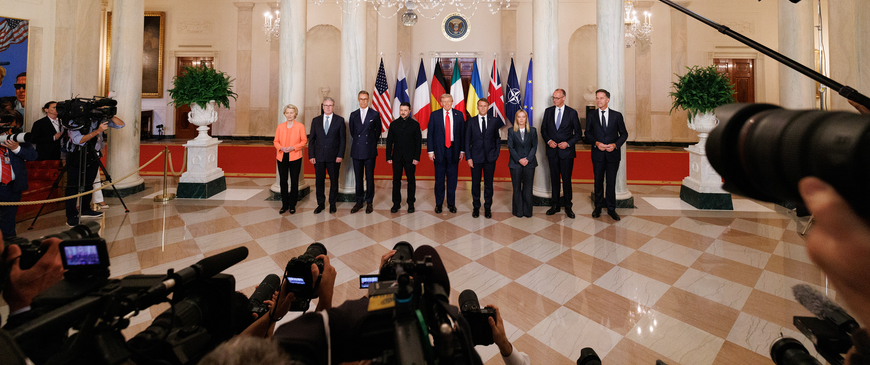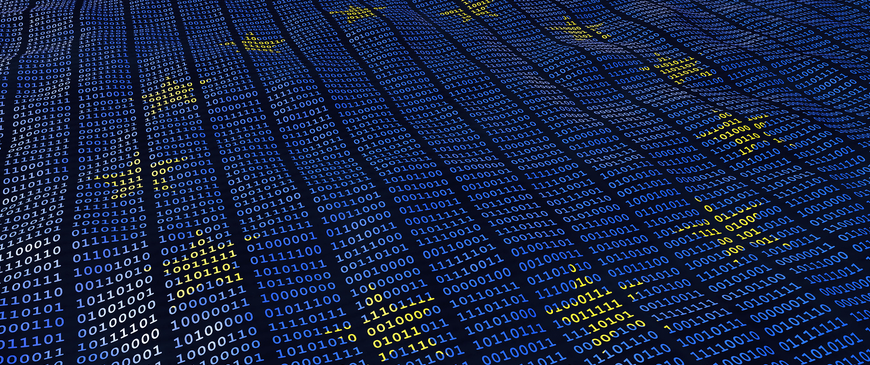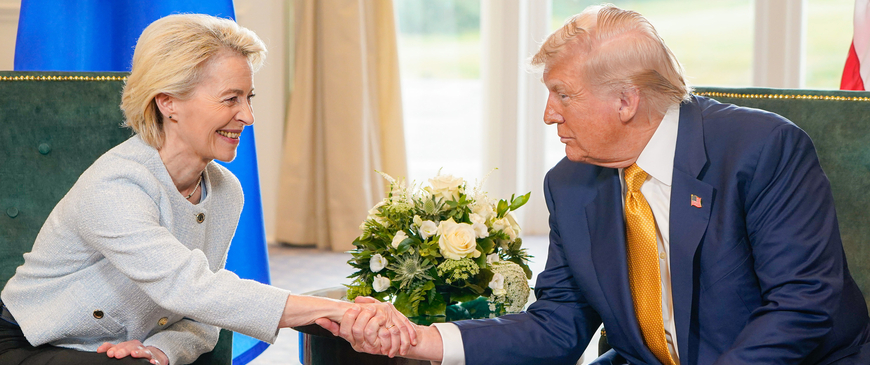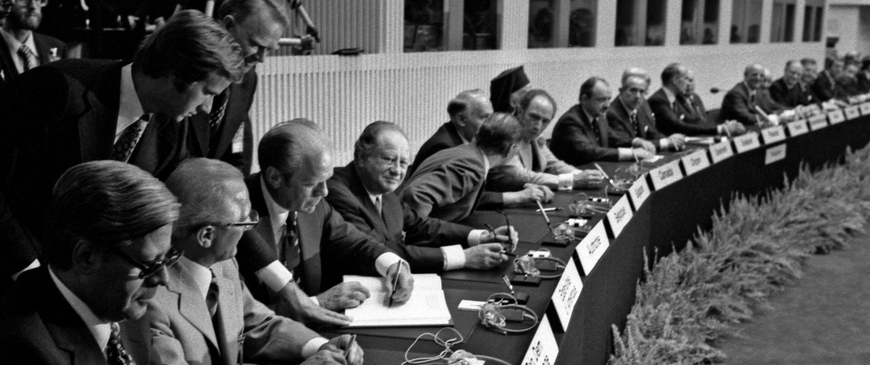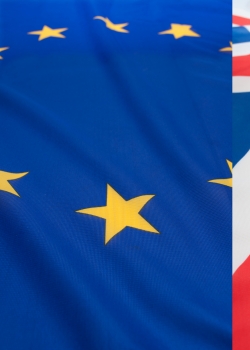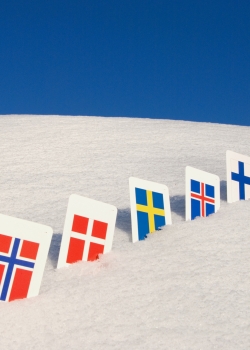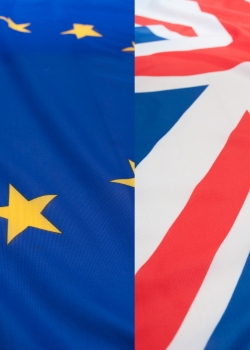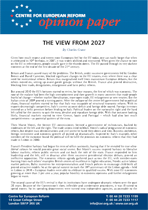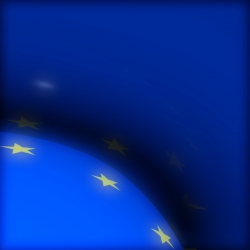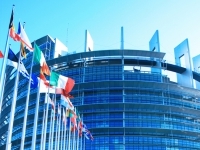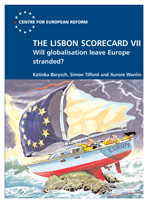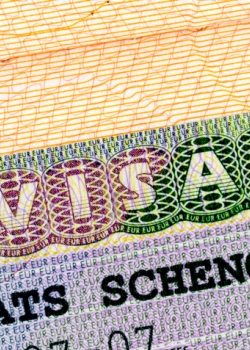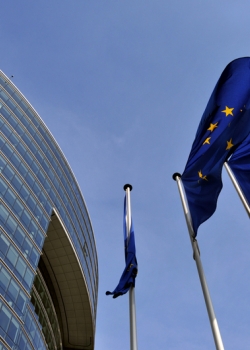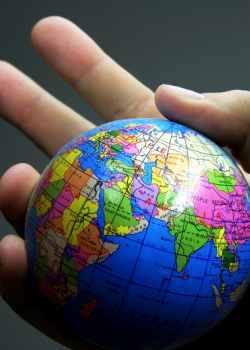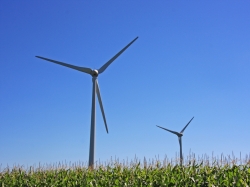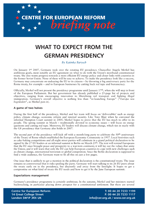Research
Britain and the EU: a crisis looms
02 April 2007
British politicians are too complacent about Germany’s plan to salvage large parts of the EU constitutional treaty. They assume that other countries will reject the German presidency’s scheme, so sparing Britain from isolation. Indeed, there is now a consensus that stretches from UK treasury officials to Conservative leaders to The...
We are all Nordic now, or are we?
02 April 2007
The EU drew up its Lisbon reform agenda in 2000 with the thinly disguised goal of catching up with the US. But the idea that Europe should strive to adopt ‘Anglo-Saxon’ capitalism is abhorrent to those who cherish Europe’s more extensive welfare states.
Ukraine’s real problem
02 April 2007
A marriage of convenience is probably too charitable a description of the relationship between Ukraine’s president, Viktor Yushchenko, and its prime minister, Viktor Yanukovich.
Issue 53 - 2007
30 March 2007
- Britain and the EU: a crisis looms, Charles Grant
- We are all Nordic now, or are we?, Katinka Barysch
- Ukraine’s real problem, Tomas Valasek
The view from 2027
22 March 2007
Given how much respect and esteem most Europeans feel for the EU today, one can easily forget that when it celebrated its 50th birthday, in 2007, it was widely disliked and mistrusted.
In defence of missile defences?
14 March 2007
For those spoiling for another good transatlantic fight, the headlines from last week’s EU summit must have come as manna from heaven.
What is wrong with Lisbon?
09 March 2007
The Lisbon agenda embodies a paradox. Progress made by the member-states has been slow and patchy. The German presidency in the first half of 2007 is playing down Lisbon, fearing that the process has been discredited by the EU’s failure to meet its targets. Commentators often cite Lisbon as an example of the mismatch between the EU’s grand ambitions and lack of delivery.Aurore Wanlin was a research fellow at the CER (2004-2007).
The future of the single market
02 March 2007
The EU puts out a lot of reports, studies, evaluations and announcements. So far this month, the Commission has released around 80 major documents. Many of them are too specialised, too long or simply too dull to attract wider interest.
What's happening to Airbus?
23 February 2007
Top of the agenda when Jacques Chirac meets Angela Merkel today in Berlin will be the crisis at Airbus. The European aircraft manufacturer has been forced to suspend a restructuring programme following inferference from both the French and German governments.
We need a new pro-Europeanism
09 February 2007
“We are not the first who meaning the best have incurred the worst”, is a line from tragic heroine Cordelia in Shakespeare’s King Lear. But it could apply equally well to the architects of the EU’s failed constitutional treaty, also a tragic but unfinished saga.
The Lisbon scorecard VII: Will globalistion leave Europe stranded?
01 February 2007
Globalisation and the rapid integration of China and India into the international economy present huge opportunities for the European Union.
Time to shake up the European Council
01 February 2007
The European Council, the EU’s supreme political authority, is malfunctioning. Europe’s most powerful leaders meet four times a year in the Council to review the EU’s work and and give political direction to the Commission, Parliament and Council of Ministers.
French candidates miss the point on globalisation
01 February 2007
The debate in the French presidential election has become dangerously protectionist. In the past, the EU’s commitment to free trade has prevented French politicians from advocating naked protectionism.
Schengen should go west as well as east
01 February 2007
EU governments spent last year arguing over the extension of Europe’s passport-free travel zone – the so-called Schengen area – to the countries that joined in 2004.
Issue 52 - 2007
26 January 2007
- Time to shake up the European Council, David Harrison
- French candidates miss the point on globalisation, Patrick Artus, Elie Cohen and Jean Pisani-Ferry
- Schengen should go west as well as east, Hugo Brady
The wrong benchmark for Eastern Europe
25 January 2007
In November last year, Anders Aslund, a long-time observer of transition economies, rang the alarm bells over Eastern Europe. In an FT article he talked about “Central Europe’s political malaise” and warned that budget profligacy and reform fatigue would keep the new members from catching up with the West.
The world in 2020
23 January 2007
By 2020, according to the Economist Intelligence Unit, the Chinese economy could overtake the US to become the largest in the world, at least when measured using purchasing power parity (PPP) exchange rates. India is expected to grow rapidly to become the third biggest economy. Alongside these Asian giants, a series of smaller powers – such as Iran and Russia – will increasingly be able to exploit their nuclear weapons and energy to increase their say in world affairs.Mark Leonard was director of foreign policy at the CER (2005-2007).
Why the UK needs to back Commission energy plans
12 January 2007
The reactions to the Commission’s energy package – widely leaked before its official publication date on January 10th – were predictable.
The Tories and human trafficking: Don’t play politics
09 January 2007
The British Conservative party kicked off the New Year saying they wanted to sign Britain up to a 2005 European convention that grants rights to the victims of human trafficking. Odd that the Conservatives should suddenly develop such a concern for humanity: only a few months before they wanted to scrap UK legislation giving effect to a related European convention on human rights for all British citizens.
What to expect from the German presidency
03 January 2007
On 1 January 2007, Germany took over the rotating EU presidency. Chancellor Angela Merkel has ambitious goals, most notably an EU agreement on what to do with the Union’s moribund constitutional treaty.

